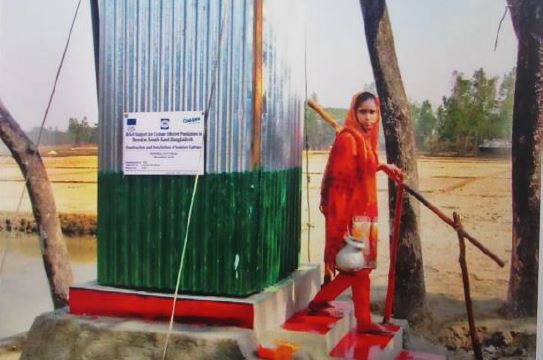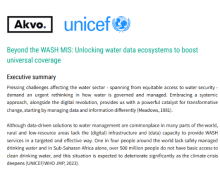Field Note: Integrating Climate Resilience into Sanitation Programming in Bangladesh

Bangladesh is highly vulnerable to climate change and extreme climate events. The Global Climate Risk Index ranks Bangladesh as the seventh most affected country in the world from extreme weather events between 2000 and 2019. Depending on the region, Bangladesh experiences regular and long-lasting floods, cyclones, storm surges, droughts, sea level rise and other extreme climate events to which its coastal and riverine populations are especially vulnerable. To reduce the impacts of climate change on sanitation services in the country, UNICEF Bangladesh mainstreamed climate change into its sanitation programming through three linked strategies: (1) creating demand for climate-resilient sanitation in the ongoing CATS/CLTS1 programme; (2) promoting and expanding the supply and installation of climate-resilient sanitation designs and products through sanitation marketing; and (3) providing climate-resilient sanitation services with a focus on constructing flood-resilient latrines in vulnerable areas. In 2021, UNICEF Bangladesh supported 529,000 people with access to climate-resilient sanitation services using these three strategies. The Accelerated Sanitation and Water for All (ASWA) II project supported the uptake of climate-resilient sanitation in Bangladesh through community awareness-raising, capacity-building and installation of climate-resilient sanitation facilities which have remained functional after climate events. Communities and other sector stakeholders are now constructing climate-resilient latrines in flood-prone areas, replicating and scaling up the climate-resilient sanitation programme within and outside of the ASWA II project areas, reaching almost all districts in Bangladesh. In line with the organizational shift to climate-resilient WASH services, UNICEF Bangladesh is supporting the scaling up of climate-resilient sanitation programming by strengthening the sector’s capacity for climate risk analyses to generate evidence for a stronger climate rationale and to improve the sustainability and design of climate-resilient sanitation solutions.




